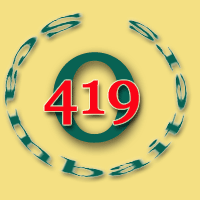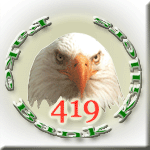
• Home •
Victim´s Story •
Fraud Prevention •
Project GSO •
Hall of Shame •
LINKS •

All About Financial Crimes I
Bank Check Fraud
Did you know that bank check fraud is costing hundreds of millions, if not billions of dollars, each year? Even with consumers and businesses taking reasonable precautions, thieves are able to reproduce checks easier today thanks to advances in copier technology. This article below offers tips such as customizing the design of your checks, conducting check audits, and what types of checking accounts thieves are targeting for bank check fraud. At the end of this article are additional tips and resources for your financial health.
CHECK FRAUD
Did you know that the UCC (Uniform Commercial Code = A set of statutes enacted by the various States to provide consistency among the States' commercial laws. It includes negotiable instruments, sales, stock transfers, trust and warehouse receipts, and bills of lading) regulations place responsibility for forgery losses partially on bank customers, rather than solely on the banks? But in addition to this exposure, there can be significant expenses and lost time investigating the crime, not to mention damage to your credibility and reputation.
Your only defence is to show that you have taken due diligence. One way to demonstrate this is by implementing careful practices regarding your checks. Another is to use checks with well implemented security features.
HOW BAD IS THE PROBLEM?
The problem is so serious that the banks don't like to reveal the extent of the problem. Estimates range from hundreds of millions to 10 billion dollars annually.
In 2001, the FBI tracked over 26,000 cases, but this is just the tip of the iceberg, because the FBI mostly focuses on cases where the amount exceeds $100,000. Just one example comes from The Green Sheet (a publication to the Financial Services Industry), reporting an incident where a family had allegedly stolen more than $1 million from area merchants since 2003 by writing checks on closed and non-existent accounts at 11 financial institutions in Indiana and Chicago under 25 different names. In just 4 years, Northern Trust Bank has detected more than 3 million dollars worth of counterfeit checks.
WHAT KIND OF THINGS DO CRIMINALS LOOK FOR?
It is an endless list, but here are some of the types of things that someone looking to counterfeit or tamper might look for:
1. High volume bank accounts where a fraudulent check can easily slip through.
2. Checks that are easy to reproduce using a color copier.
3. Checks that are easy to tamper with.
4. Easy access to checkbook or check stock.
WHAT CAN I DO TO PROTECT MYSELF?
By protection, we mean reducing the chance of someone counterfeiting or altering your checks, as well as reducing your liability when it occurs.
Be aware that is impossible to prevent fraud. But you can significantly minimize the risk using a two-prong approach. It is critical that good procedures related to your check processing are put in place, and that you use a check that is difficult to counterfeit or alter.
1. Reconcile your bank statement promptly. Now that bank statements are available online, you can do this as frequently as you feel is necessary for your situation.
2. Restrict access to your checkbook/check stock. Ensure that only trusted staff that need access have it.
3. Audit your checks. However, this can be difficult because often checks are removed from the bottom or middle of the book or stack.
4. Use a custom design. While this isn't an affordable option for many businesses, look into it. The next best thing is to ensure that your check supplier uses comprehensive security features. Remember though that a custom design is not a substitute for security features.
Advise your bank branches' officials of the security features in your checks … in person or in writing (and keep a copy of the letter on file!).
If you issue a large number of checks, particularly with a low amount (eg. rebate checks), open a separate account and alert the bank staff of an upper limit for that account.
Reporting Fraud
In the event that you do detect fraud or have been a victim, please use the contact information below.
" FTC toll free hotline: 877-FTC-HELP (877-382-4357 )
" FTC online complaint form (www.ftc.gov)
" Canadian PhoneBusters hotline: 888-495-8501
" Internet Fraud Complaint Center (www.ic3.gov)
" Internet Fraud Information (www.firstgov.gov/Citizen/Topics/Internet_Fraud.shtml)
" FBI (www.fbi.gov)
Tips for recognizing and avoiding counterfeit check scams
If someone you don't know wants to pay you by check or money order and wants you to wire a portion of the money back, beware! It's a scam that could cost you thousands of dollars.
There are many variations of the counterfeit check scam. It could start with someone offering to buy something you advertised, pay you to do work at home, give you an "advance" on a sweepstakes you've supposedly won, or pay the first installment on the millions that you'll receive for agreeing to have money in a foreign country transferred to your account for safekeeping. Whatever the pitch, the person may sound quite believable.
Counterfeit check scammers hunt for victims. They scan newspaper and online advertisements for people listing items for sale, and check postings on online job sites from people seeking employment. They place their own ads with phone numbers or e-mail addresses for people to contact them. And they call or send emails or faxes to people randomly, knowing that someone will take the bait.
They often claim to be in another country. The scammers say it's too difficult and complicated to send you the money directly from their country, so they'll arrange for someone in the U.S. to send you a check.
They tell you to wire money to them after you've deposited the check. If you're selling something, they say they'll pay you by having someone in the U.S. who owes them money send you a check. It will be for more than the sale price; you deposit the check, keep what you're owed, and wire the rest to them. If it's part of a work-at-home scheme, they may claim that you'll be processing checks from their "clients." You deposit the checks and then wire them the money minus your "pay." Or they may send you a check for more than your pay "by mistake" and ask you to wire them the excess. In the sweepstakes and foreign money offer, they tell you to wire them money for taxes, customs, bonding, processing, legal fees, or other expenses that must be paid before you can get the rest of the money.
The checks are counterfeit but they look real. In fact, they look so real that even tellers may be fooled. Some are phony cashiers checks, others look like they're from legitimate business accounts. The companies whose names appear may be real, but someone has dummied up the checks without their knowledge.
You don't have to wait long to use the money, but that doesn't mean the check is good. Under federal law (Regulation CC), financial institutions have to make the funds you deposit available - usually within one to five business days (sometimes longer), depending on the type of check. But just because you can withdraw the money does not mean the check is good, even if it's a cashiers check. It can take weeks for the counterfeit or forgery to be discovered and the check to bounce.
You are responsible for the checks you deposit. That's because you're in the best position to determine the risk - you're the one dealing directly with the person who is arranging for the check to be sent to you. When a check bounces, the financial institution deducts the amount that was originally credited to your account. If there isn't enough to cover it, the financial institution may be able to take money from other accounts you have at that institution, or sue you to recover the funds.
There is no legitimate reason for someone who is giving you money to ask you to wire money back. If a stranger wants to pay you for something, insist on a cashiers check for the exact amount, preferably from a local credit union or bank, or a credit union or bank that has a branch in your area.
Don't deposit it - report it! Report counterfeit check scams to the National Fraud Information Center/Internet Fraud Watch, a service of the nonprofit National Consumers League, at www.fraud.org or (800) 876-7060 . The information will be transmitted to the appropriate law enforcement agencies.
Please contact us if you have questions or we can help you in any way
© by GSO • Contact